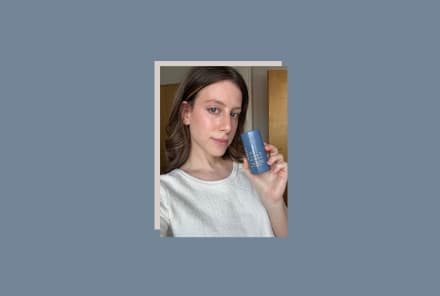Advertisement
A Mini-Guide To Choosing The Best Nontoxic Mattress


A good night’s sleep is a major component of a healthy lifestyle, and yet it’s elusive for many people. I’ve talked at length about circadian rhythms and the importance of creating a sleep routine, but cleaning up your sleep environment can have a big impact, too. Your mattress plays a big part in that.
Here are the three most important questions to consider in choosing a mattress to support a healthy night’s sleep:
1. Is it made from toxic materials?
You’re ideally spending 7 to 8 hours a night cozying up to your mattress, so make sure you choose one that is as natural as possible. Avoid PBDEs, which are used in mattresses as flame retardants. A good natural mattress will utilize a non-toxic Kevlar flame retardant or a wool layer.
Even if yours has a wool layer, ask questions about it! Wool, even organic, must be bonded together with synthetic adhesive fibers, which are often toxic. Some companies can make you a mattress without the flame retardant if you have a note from your doctor. If your body can work on its own vital processes instead of combatting toxins while you sleep, you’ll wake more rested.
2. Does it optimize blood flow?
Is your mattress really comfortable? Comfort is not just about the first ten minutes, it’s about the whole eight hours. Optimized blood flow is a crucial element of a restful night sleep that is rarely considered. You want to find a mattress that creates unrestricted blood flow through proper support and pressure relief. One of the best options to ensure this is memory foam.
Poor circulation can cause pain that leaves you tossing and turning. Every time you’re roused to change your sleeping position, you reset your sleep cycle, which again can leave you feeling groggy and tired even after a full night’s sleep.
3. Will it give you good support?
You’ll want to avoid spring mattresses, as the components are generally the lowest quality on the market. Spring mattresses are also the biggest culprit of triggering pressure points, especially with the loss in support that occurs after just a few years of use.
Natural and organic latex mattresses are durable and work well for a clean air environment, but they fall short when it comes to properly supporting your body and reducing those pressure points. Memory foam is a material that gives you all the body support benefits but without the clean air benefits of natural latex.
Quick tip: If the natural mattress you’re considering is topped with wool, make sure the wool layer can be easily removed and washed. Wool is a nesting ground for dust mites, which are a pain for most allergy sufferers.
So, reducing sleep interruptions and pressure points, promoting a clean air environment, and ensuring proper skeletal support are the most important attributes of a quality mattress.
While many brands offer solutions to at least one issue, finding a mattress that combines all of these attributes really narrows down the playing field. Personally, I’ve recently switched to Essentia’s natural memory foam mattress. I have to say, I’ve been enjoying a new level of rest and recovery.

For Dr. Frank Lipman, health is more than just the absence of disease: it is a total state of physical, mental, emotional, spiritual and social wellbeing. Dr. Lipman is a widely recognized trailblazer and leader in functional and integrative medicine, and he is a New York Times best-selling author of five books, How to Be Well, The New Health Rules, Young and Slim for Life, Revive and Total Renewal.
After his initial medical training in his native South Africa, Lipman spent 18 months working at clinics in the bush. He became familiar with the local traditional healers, called sangomas, which kindled his interest in non-Western healing modalities
In 1984, Lipman immigrated to the United States, where he became the chief medical resident at Lincoln Hospital in Bronx, NY. While there, he became fascinated by the hospital’s addiction clinic, which used acupuncture and Chinese medicine making him even more aware of the potential of implementing non-Western medicine to promote holistic wellbeing.
He began studying nutrition, acupuncture, Chinese medicine, herbal medicine, functional medicine, biofeedback, meditation, and yoga. Lipman founded the Eleven Eleven Wellness Center in 1992, where he combines the best of Western medicine and cutting edge nutritional science with age-old healing techniques from the East. As his patient, chef Seamus Mullen, told The New York Times, “If antibiotics are right, he’ll try it. If it’s an anti-inflammatory diet, he’ll do that. He’s looking at the body as a system rather than looking at isolated things.”
In addition to his practice, he is also an instructor in mbg's Functional Nutrition Program.
More from the author:
Functional Nutrition Training
Check out Functional Nutrition Coaching
A cutting-edge nutrition deep dive taught by 20+ top health & wellness experts
Learn moreMore from the author:
Functional Nutrition Training
Check out Functional Nutrition Coaching
A cutting-edge nutrition deep dive taught by 20+ top health & wellness experts
Learn more
For Dr. Frank Lipman, health is more than just the absence of disease: it is a total state of physical, mental, emotional, spiritual and social wellbeing. Dr. Lipman is a widely recognized trailblazer and leader in functional and integrative medicine, and he is a New York Times best-selling author of five books, How to Be Well, The New Health Rules, Young and Slim for Life, Revive and Total Renewal.
After his initial medical training in his native South Africa, Lipman spent 18 months working at clinics in the bush. He became familiar with the local traditional healers, called sangomas, which kindled his interest in non-Western healing modalities
In 1984, Lipman immigrated to the United States, where he became the chief medical resident at Lincoln Hospital in Bronx, NY. While there, he became fascinated by the hospital’s addiction clinic, which used acupuncture and Chinese medicine making him even more aware of the potential of implementing non-Western medicine to promote holistic wellbeing.
He began studying nutrition, acupuncture, Chinese medicine, herbal medicine, functional medicine, biofeedback, meditation, and yoga. Lipman founded the Eleven Eleven Wellness Center in 1992, where he combines the best of Western medicine and cutting edge nutritional science with age-old healing techniques from the East. As his patient, chef Seamus Mullen, told The New York Times, “If antibiotics are right, he’ll try it. If it’s an anti-inflammatory diet, he’ll do that. He’s looking at the body as a system rather than looking at isolated things.”
In addition to his practice, he is also an instructor in mbg's Functional Nutrition Program.
Watch Next
Enjoy some of our favorite clips from classes
Enjoy some of our favorite clips from classes
What Is Meditation?
Mindfulness/Spirituality | Light Watkins
Box Breathing
Mindfulness/Spirituality | Gwen Dittmar
What Breathwork Can Address
Mindfulness/Spirituality | Gwen Dittmar
The 8 Limbs of Yoga - What is Asana?
Yoga | Caley Alyssa
Two Standing Postures to Open Up Tight Hips
Yoga | Caley Alyssa
How Plants Can Optimize Athletic Performance
Nutrition | Rich Roll
What to Eat Before a Workout
Nutrition | Rich Roll
How Ayurveda Helps Us Navigate Modern Life
Nutrition | Sahara Rose
Messages About Love & Relationships
Love & Relationships | Esther Perel
Love Languages
Love & Relationships | Esther Perel

















